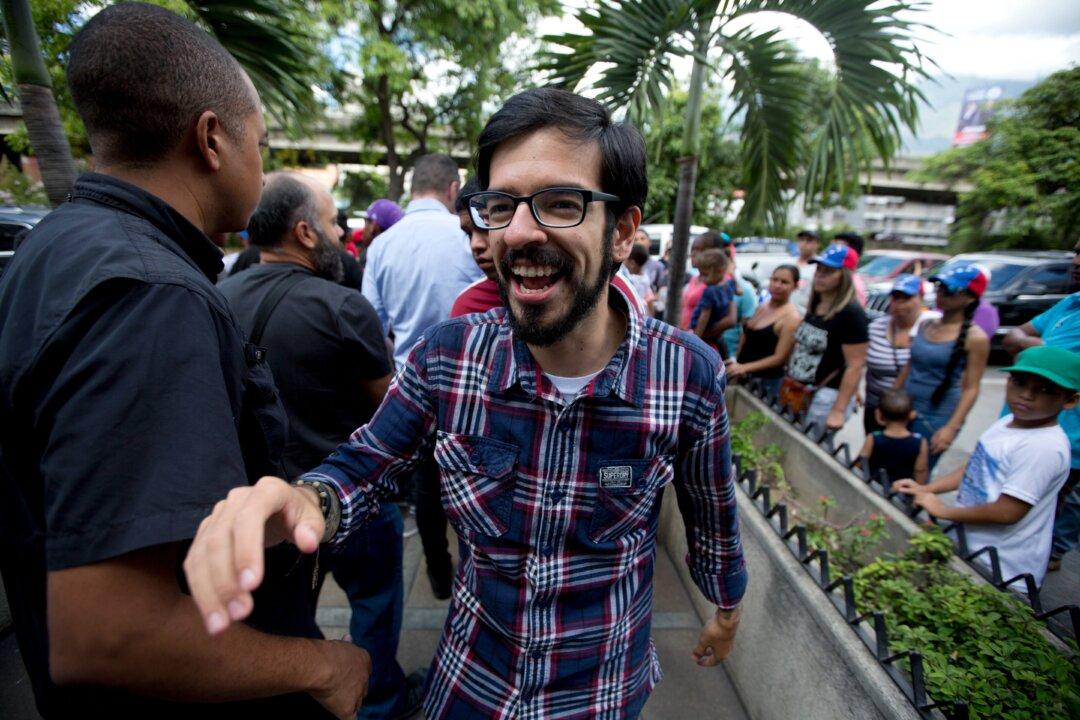CARACAS, Venezuela—Venezuela’s opposition, still rejoicing from its shock triumph in legislative elections, is now waiting anxiously for the final tally to see whether it secured a two-thirds supermajority that could dramatically wrest power from President Nicolas Maduro after 17 years of socialist rule.
The Democratic Unity opposition alliance declared Monday that it won the minimum number of seats needed to initiate a process to remove Maduro. But despite the efficiency and transparency promised by the country’s electronic voting system, the National Electoral Council has yet to announce the results of 22 undecided races almost a full day after polls closed.
The opposition coalition won at least 99 seats in the incoming 167-seat legislature, electoral authorities announced after midnight Sunday, setting off a cacophony of car honks and fireworks in the capital’s wealthier eastern neighborhoods. The ruling Socialist party and its allies won 46 seats.
The opposition coalition needs 13 of the 22 undecided races to give it the supermajority needed to sack Supreme Court justices, initiate a referendum to revoke Maduro’s mandate and even convoke an assembly to rewrite Hugo Chavez’s 1999 constitution.
U.S. Secretary of State John Kerry congratulated Venezuelans for making their voice heard and called on authorities to tabulate and publish remaining results in a timely manner.
“Dialogue among all parties in Venezuela is necessary to address the social and economic challenges facing the country, and the United States stands ready to support such a dialogue together with others in the international community,” Kerry said in a statement.
Even if the opposition falls short, the landslide could unleash intense political battles. Since the late Chavez swept into power, the opposition has never held a branch of government.
Both sides are more accustomed to hurling insults than negotiating across the country’s vast political divide, and a protracted power struggle could rip apart an economic and social fabric already in tatters.
Maduro urged his supporters to accept Sunday’s results, even as he recalled the long history of US-supported coups in Latin America and blamed the “circumstantial” loss on a right-wing “counterrevolution” trying to sabotage Venezuela’s oil-dependent economy and destabilize the government.
“I can say today that the economic war has triumphed,” said Maduro, who was surrounded by top socialist leaders in the presidential palace as he mostly pulled phrases from the stump speech he had been delivering before the election.
Hardliners in the opposition seemed similarly entrenched, preferring to talk about ending Maduro’s rule before his term ends in 2019 rather than resolving Venezuela’s triple-digit inflation, plunging currency and the widespread shortages expected to worsen in January as businesses close for the summer vacation.





